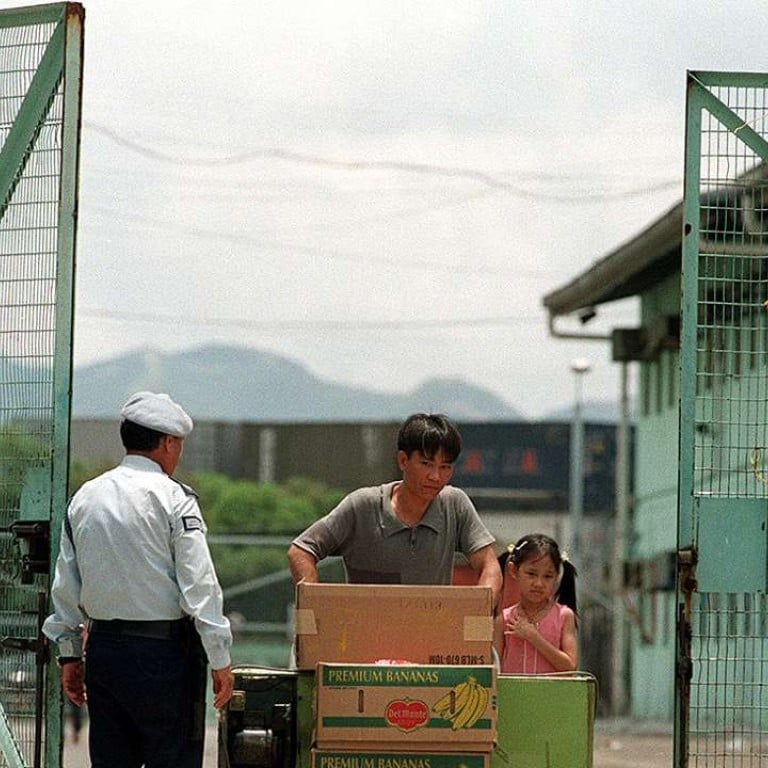
Build a detention camp in Shenzhen for Hong Kong’s asylum seekers: former security chief Regina Ip
Chief Executive CY Leung says idea would take too long, while human rights and legal experts dismiss it as unacceptable
Executive councillor and former security chief Regina Ip Lau Suk-yee called for a camp to be set up in Shenzhen for asylum seekers to halt the influx of economic immigrants to Hong Kong.
But concern groups slammed the idea as “unacceptable”, saying the authorities should not treat the individuals as criminals.
Ip, also a lawmaker of the New People’s Party, told the media she recently informally suggested to government officials building a detention centre on an outlying island of Shenzhen to house all asylum and torture claimants seeking to enter Hong Kong.

She claimed the officials “in general agreed” that a closed camp would serve as a “good deterrent”, but she did not identify the officials she consulted.
Hong Kong now faces a backlog of 11,160 applications on asylum and torture grounds that need to be screened. It was understood that a case took on average 2.3 years to resolve and that only 27 cases were confirmed to be genuine since the vetting system was unified in 2014.
Hong Kong’s asylum system is in urgent need of repair
Chief Executive Leung Chun-ying claimed the system was widely abused by economic immigrants and said in January that the city might unilaterally withdraw from the United Nations’ torture convention if needed.
His idea was endorsed by Ambrose Lee Siu-kwong, another former security chief, but it was quickly rejected by Beijing legal expert and Peking University law professor Rao Geping.
Ip added the government should liaise with mainland authorities to lease a plot of land over the border to build the camp owing to a lack of land locally.
“In the past, we operated closed camps for Vietnamese boat people,” she said. “There was a historical precedent. If they know they’ll be locked up in a camp, many of them won’t choose to come and seek asylum.”

Responding to a question from the South China Morning Post’s before the weekly Executive Council meeting on Tuesday morning, the chief executive said Ip’s idea would take too long.
“We are seeking to solve the problem with solutions that will take effect in the short term. If we were to find a place in an outlying island [in Shenzhen], it would take a long time to finish the planning works in Hong Kong first, and we don’t want to wait that long,” Leung said.
He reiterated that the refugee problem is “extremely troubling for Hong Kong”, and that it “exerted a very big pressure on the administration”.
Leung also said the government would seek to solve the problem “from different levels”, such as by handling it as a public order issue, and by seeking to work with Beijing on a diplomatic level, as the refugees come mainly from a few countries.
How Europe can learn from the hard lessons of Hong Kong’s Vietnamese refugee crisis
Director of Amnesty International Hong Kong Mabel Au criticised the government for failing to identify the crux of the problems.
“A backlog of claimants in the city would cause a series of problems,” Au said. “But why is there a backlog? Maybe the authorities are taking too slow” with cases.

A bureau spokesman said if the plan was found legally feasible, it would find “suitable facilities for refurbishment to expand” detention capacity as needed.
She said local officials could suggest to Beijing exempting the city from the article of the UN torture treaty limiting a state party from returning a person to a place where one would face torture, if withdrawing from the entire treaty was not possible.
Additional reporting by Tony Cheung



